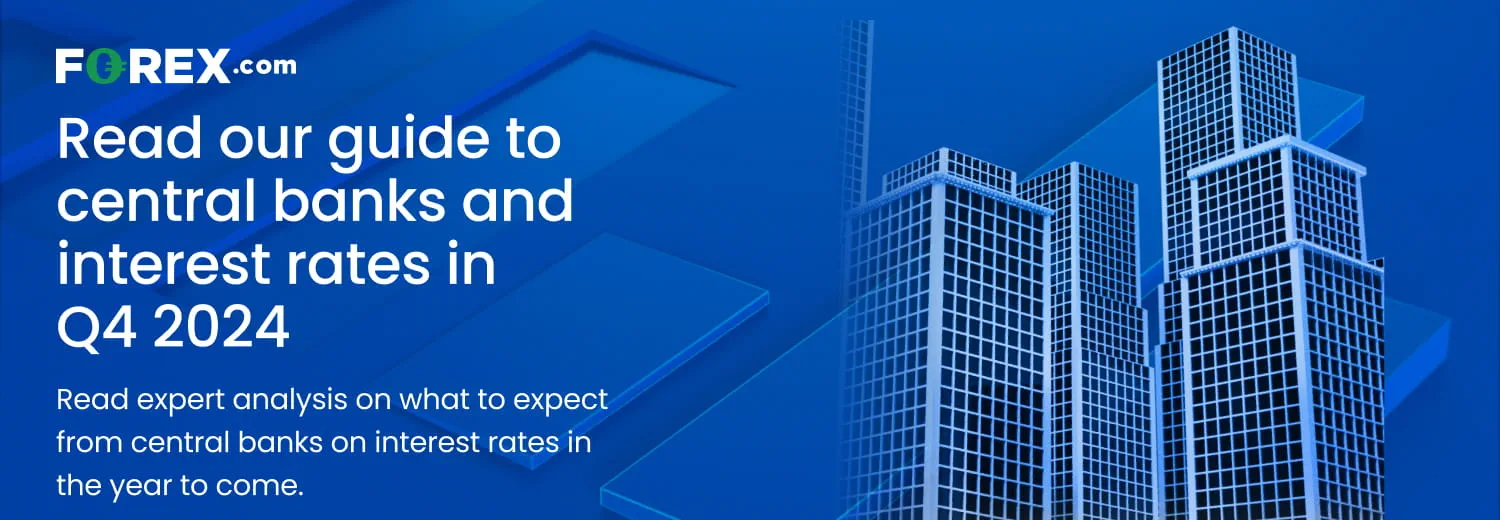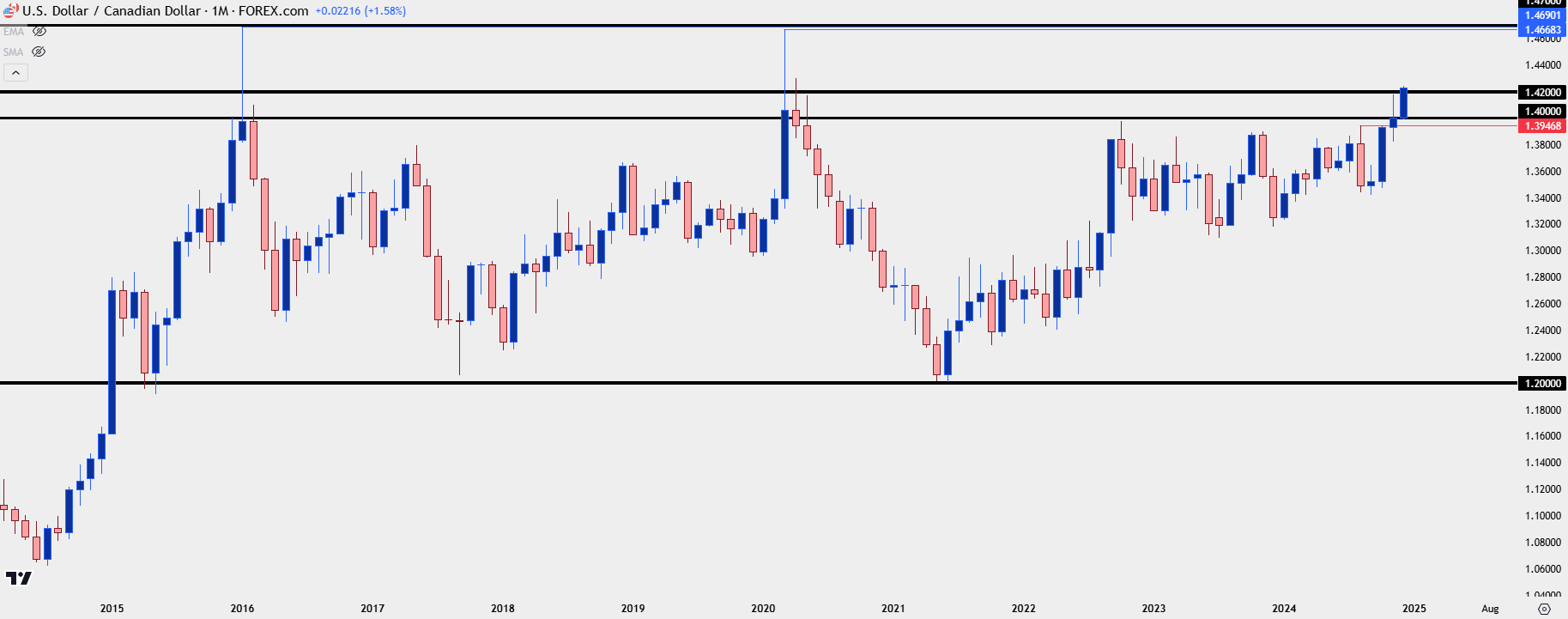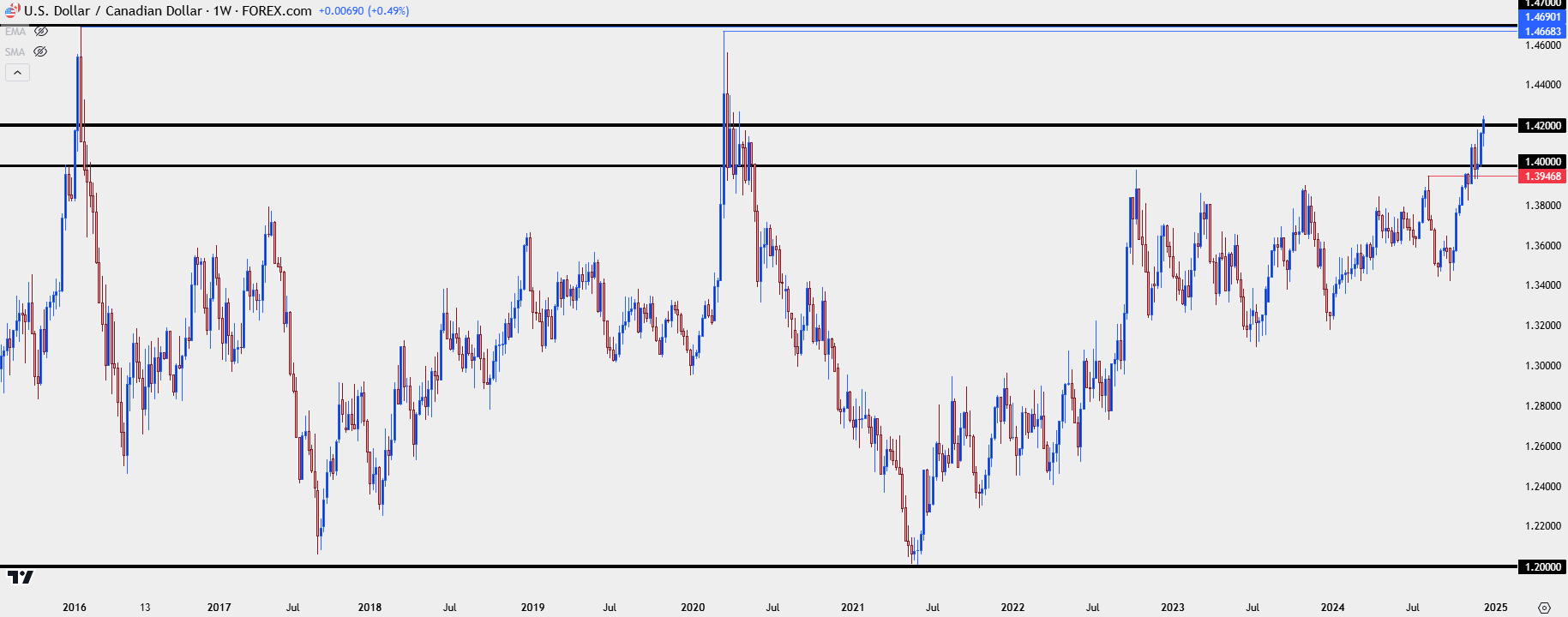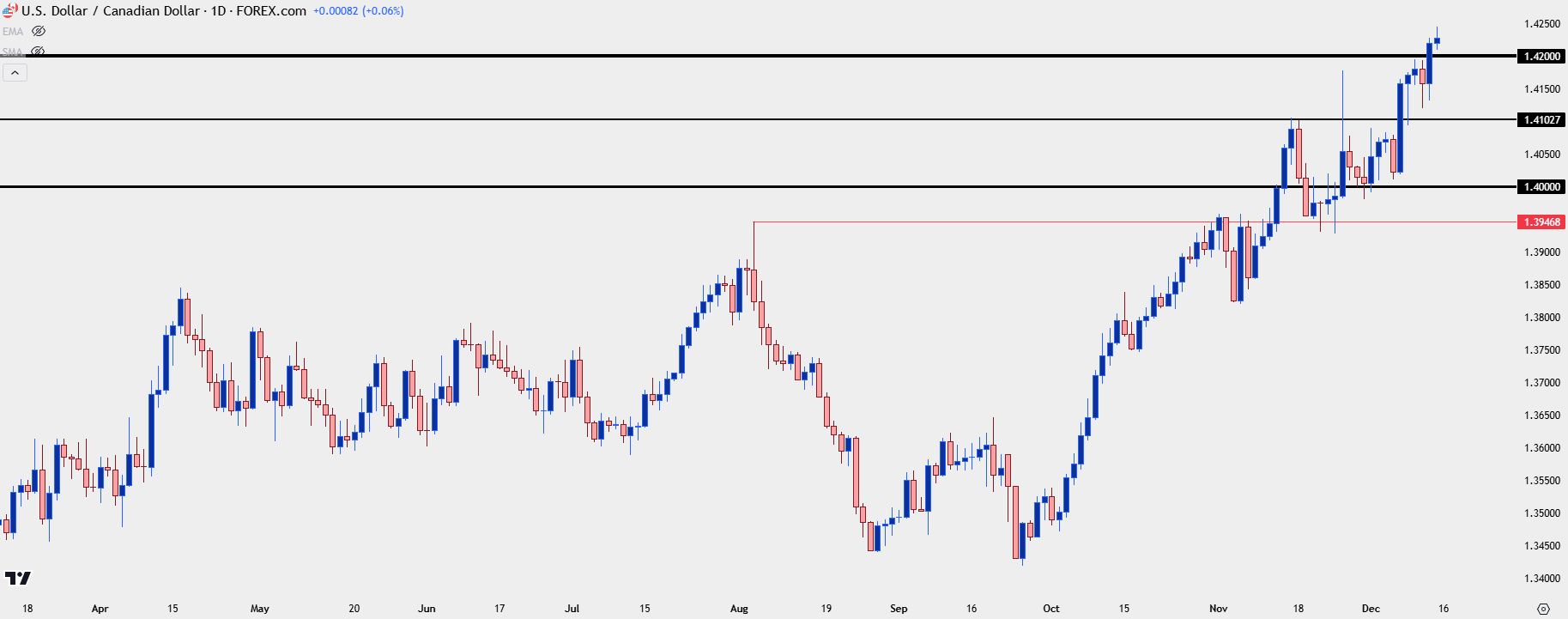Canadian Dollar Talking Points:
- It’s been a strong start to December for USD/CAD and that strength can be drawn back to late-November, when President-elect Trump began talking about 25% tariffs on Mexico and Canada.
- While the initial tariff claim was related to the flow of migrants and drugs across the American border, PM Trudeau traveled to Florida to highlight the difference, but Trump’s response was more jovial in nature as he welcomed Canada as the 51st U.S. state and has continually called PM Trudeau a ‘governor.’ While this was of course in jest, the media has continually followed the scenario and it very much highlights the negotiation position of each party as we near Trump’s inauguration.
- More recently, Canadian Premiers, most notably Doug Ford of Ontario, have suggested retaliation by reducing or even halting exports of minerals, metals, oil or electricity.
- That threat hasn’t been met favorably by markets, however, as USD/CAD has simply broken-out to another fresh four-year high as even more Canadian Dollar weakness has followed.

It’s been a dramatic past month for US and Canadian relations. As President-elect Trump’s poll numbers improved through October and into November, USD/CAD continually weakened from a September low of 1.3420 to a pre-election high of 1.3959. While the trend was smooth and consistent and one-sided, it also fit within the price action from the pair over the past four years.
But what’s happened since the election has been notable, as USD/CAD has climbed above the psychological 1.4000 level for only the third time in the past twenty years. And it hasn’t stopped at the big figure, as the bullish trend has continued to heat up. Earlier this week the Bank of Canada cut rates by 50 bps; and the initial move was a counter-trend bounce in CAD and sell-off in USD/CAD. But, as I had highlighted shortly after, the dominant trend of strength in USD/CAD remains in-play, and that has since led to another fresh four-year-high in the pair.
USD/CAD Monthly Chart
 Chart prepared by James Stanley, USD/CAD on Tradingview
Chart prepared by James Stanley, USD/CAD on Tradingview
Investors Abhor Uncertainty
At that rate cut, BoC Governor Tiff Macklem had a comment that I think sticks out as important. He called the threat of tariffs on Canada a ‘major new uncertainty,’ and he went on to say “No one knows how this will play out in the months ahead – whether tariffs will be imposed, whether exemptions get agreed, or whether retaliatory measures will be put in place.” And this really highlights the crux of the matter – we simply don’t know. And I think the move that we’re seeing in the pair is that uncertainty getting priced-in, with investors punishing CAD and buying the USD, in the possibility that tariffs do get imposed which would likely have a more punitive effect on the Canadian economy.
But – is a weakened Canadian economy really in the best long-term interests of the United States? Given the energy imports that’s something that I doubt, and it’s also a reason that the longer-term range could, at some point, come back into play.
While I think it would be impossible to predict how Trump wants to handle the situation, I would expect him to take the most business-friendly approach which, in this case, would be avoiding tariffs as oil imports from Canada help to keep energy prices and, in-turn, inflation, at lower levels.
But we’re not truly going to know what’s going to happen until inauguration day in January, when Trump said he would swiftly impose tariffs.
Until then, there is some prior context to work with. In both 2016 and 2020, the prior instances when USD/CAD climbed above the 1.4000 handle, prices eventually made a run towards 1.4700, falling just short each time. In 2020 with the pandemic pushing the US Dollar, USD/CAD set a high of 1.4668. And in 2016, that high was at 1.4690. That provides some scope should the advance continue.
USD/CAD Weekly Chart
 Chart prepared by James Stanley, USD/CAD on Tradingview
Chart prepared by James Stanley, USD/CAD on Tradingview
USD/CAD For Now the Dominant Trend Remains Bullish
There was a similar inter-play in the US Dollar around the 2016 election, the first time that Trump won the Presidency. In that episode both the US Dollar and US equities launched higher in the aftermath of the election. But, in 2017 the US Dollar reversed aggressively as stocks continued to run-higher, and in that episode there were even some remarks around the US Dollar being ‘too strong’ from President Trump.
I think that President-elect Trump, who once claimed that he ‘loved debt,’ will bias toward as weaker USD, if at all possible. And I also think that the range in USD/CAD could be an item of interest for next year.
But, for now, the trend remains higher in USD/CAD and given the continued higher-highs and lows, that’s a point that can’t really be argued. For traders looking to work with shorter-term trends, there’s support potential at prior points of resistance, such as the 1.4200 level that held the highs until yesterday, or the 1.4100 level that was prior resistance.
So far, the 1.4000 level has been defended by bulls in early December but if the range continuation scenario is going to come back into play, it’s that price, along with the 1.3950 level, that bears will need to chew through first to give indication for that possibility of bigger picture range continuation. And, in-turn, those could also be seen as invalidation levels for short-term bullish continuation approaches.
USD/CAD Daily Price Chart
 Chart prepared by James Stanley, USD/CAD on Tradingview
Chart prepared by James Stanley, USD/CAD on Tradingview
--- written by James Stanley, Senior Strategist